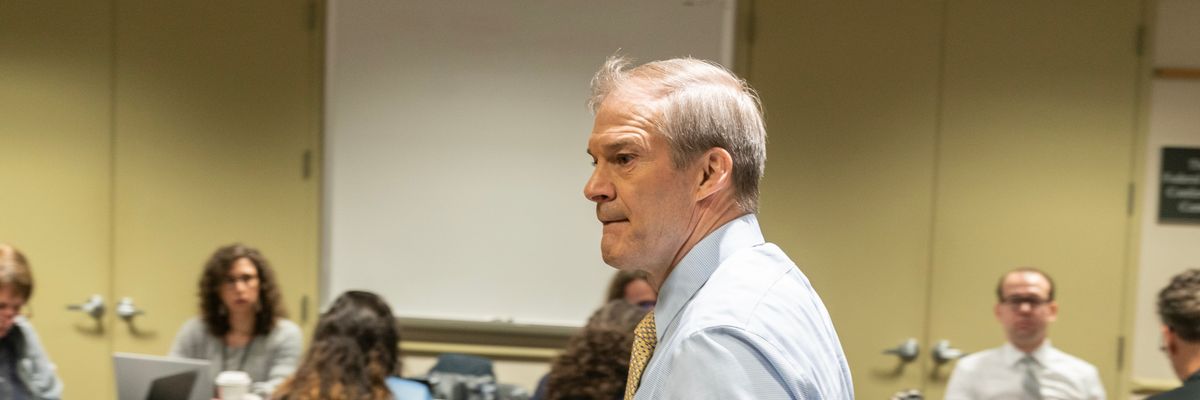Jim Jordan’s bid to become the next Speaker of the House gained momentum today, with a number of prominent Republican members reversing earlier statements and pledging to support his bid.
According to a new report from Axios, that change of heart may have been motivated in part by assurances from the Ohio Congressman that he would allow a floor vote on linking Ukraine funding with Israel funding if he wins the gavel.
Axios’ reporting cites four House Republicans that left meetings with the Speaker nominee “under the impression” that Jordan would allow such a vote.
Many of the members who came out in support of Jordan’s bid this morning cited productive conversations with the Congressman, without providing any specifics.
Some of the members who surprisingly endorsed Jordan’s bid this morning are defense hawks like Rep. Mike Rogers (R-Ala), the chairman of the House Armed Services Committee, who were reportedly concerned about Jordan’s reluctance to continue funding Kyiv’s war effort and his desire to enact that 1% across-the-board spending cut that could have included the Pentagon.
"He's not going to block a vote,’ said one of the House Republicans who spoke with Jordan,” according to Axios.
A spokesman for Jordan’s office told Axios that the Congressman made no promises, and that “Jordan's conversations were about working to find the right approach, rather than specific promises.”
As RS previously reported, a significant number of Republicans on Capitol Hill — including a number of supporters of further aid for Ukraine — had balked at the Biden administration’s planned proposal to combine aid for Kyiv, Tel Aviv, and more into a single package.
Rep. Tom Cole (R-Okla.), who last month emphasized his support for supporting Ukraine, likened the move to combine that effort with aid to Israel to “blackmail.”
Others were more blunt. “They shouldn’t be tied together. I will not vote to fund Ukraine. Absolutely not,” said Rep. Marjorie Taylor Greene (R-Ga.) last week. “Israel is totally separate.”
Rep. Matt Gaetz (R-Fla.), who has been a staunch supporter of Jordan’s candidacy, said on CNN last week “however you feel about Israel and Ukraine, I think a responsible and reasonable government ought to address those questions separately."
During the interview, he implied that Jordan shared that sentiment. Gaetz earlier led an effort to remove Rep. Kevin McCarthy (R-Calif.) from the Speakership, in part because the former Speaker had made a “secret side deal” with Biden to keep funding Ukraine.
The floor vote for Speaker is expected to be held tomorrow, and it is not yet confirmed whether Jordan has enough votes to cross the 217-vote threshold, despite the string of eleventh-hour endorsements.
















